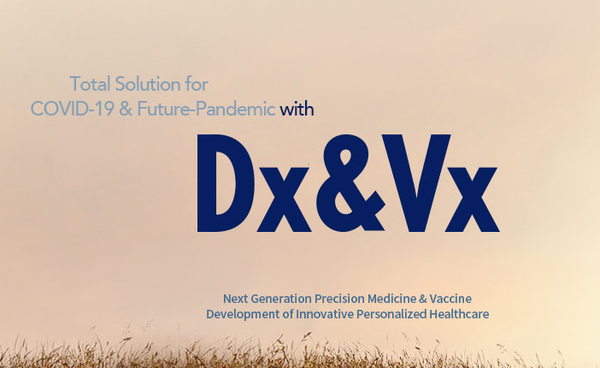Dx&Vx is closing in on licensing agreements with “multiple pharmaceutical giants” for its room temperature-stable mRNA vaccine platform, the company said Wednesday, marking a pivotal step in its shift from diagnostics to what it now calls a “full-scale bio-health company.”
The Korean biotech, once a quiet player in genomic testing under the name CancerRop, has spent the past three years rebuilding its identity and pipeline. After bringing in Coree Group-backed leadership in 2021, the company rebranded, rewrote its articles of incorporation, and overhauled its executive team to expand beyond diagnostics into vaccines, therapeutics, and platform technologies.
Now, it’s looking to cash in. In Wednesday's release, Dx&Vx said it is “in the final stage of negotiations with a global pharmaceutical giant," including a material transfer agreement (MTA) for its mRNA platform, a legal mechanism that gives potential partners access to test the platform.
A similar deal with a major Korean pharma is also in the works, the company added, with "tangle results expected within the year."

In a Thursday note to Korea Biomedical Review, a Dx&Vx spokesperson said the company is offering “exclusive use rights” to partners who want to integrate the mRNA platform into their pipelines and marketed products.
Full ownership is off the table. Instead, the company said it plans to safeguard its core intellectual property by licensing the platform on a product-specific basis, a strategy meant to multiply deals while maintaining control.
The mRNA platform, selected last year for Korea’s ARPA-H national research program, is designed to maintain the stability of naked mRNA at room temperature for up to 10 years and preserve lipid nanoparticles -- the drug delivery vehicles used in mRNA vaccines -- for over a month in buffered solution.
Dx&Vx said those characteristics make the technology suitable for mRNA and RNA-based therapeutics, DNA vaccines, aptamers (short synthetic nucleic acids that bind to target proteins), gene therapies, and genome editing programs.
“A bio-health platform has the same effect as possessing multiple individual technologies,” the company spokesperson said, pointing to licensing breadth as the driver of its strategy.
The mRNA platform sits at the heart of a broader licensing campaign that includes an oral GLP-1 obesity drug supported by two patent filings and OVM-200, a cancer vaccine licensed from U.K.-based Oxford Vacmedix. The company has secured development and commercialization rights for OVM-200 in Korea, India, and Greater China, including Hong Kong, Macau, and Taiwan.
Alongside those assets, Dx&Vx is pushing a preclinical mRNA cancer vaccine, a microbiome program for obesity and depression, and a next-generation antiviral platform acquired last month from LUCA AI Cell. That platform includes a candidate therapy designed to target a broad range of coronaviruses, including SARS and MERS, as well as potential future threats referred to by global health authorities as “Disease X.”
Despite the expansion, Dx&Vx remains lean, with healthcare product sales still accounting for most of its revenue.
But the company said 2025 will be the year its reinvention becomes visible. In Wednesday's release, it said it is “redefining itself as a bio-healthcare company” and expects licensing deals tied to its revamped R&D pipeline to materialize before year’s end.
“Global interest in our pipeline is now translating into licensing discussions,” the company said. “We believe this year will mark the start of a new identity, one rooted in vaccines, therapeutics, and the platforms that support them.”
Related articles
- Dx&Vx secures next-gen antiviral therapy platform from LUCA AI Cell
- Dx&Vx partners with Stanford to develop Covid-19 vaccine
- Hanmi Pharm CEO Park retains position as eldest son fail to block independent management
- Dx&Vx sparks collaborations with global pharma at JPM 2024, Biotech Showcase 2024
- Dx&Vx launches genomic big data service
- DX & VX signs 3 billion-won precision medical genome analysis contract
- CancerRop officially restarts as Dx&Vx
- Dx&Vx strikes 1st deal with global pharma to test mRNA platform
- Dx&Vx inks 1st global licensing deal for mRNA cancer vaccine
- Dx&Vx subsidiary Avixgen signs licensing deal with US biotech for drug delivery platform
- Dx&Vx introduces Yikon Genomics technology to enhance infertility diagnostics

